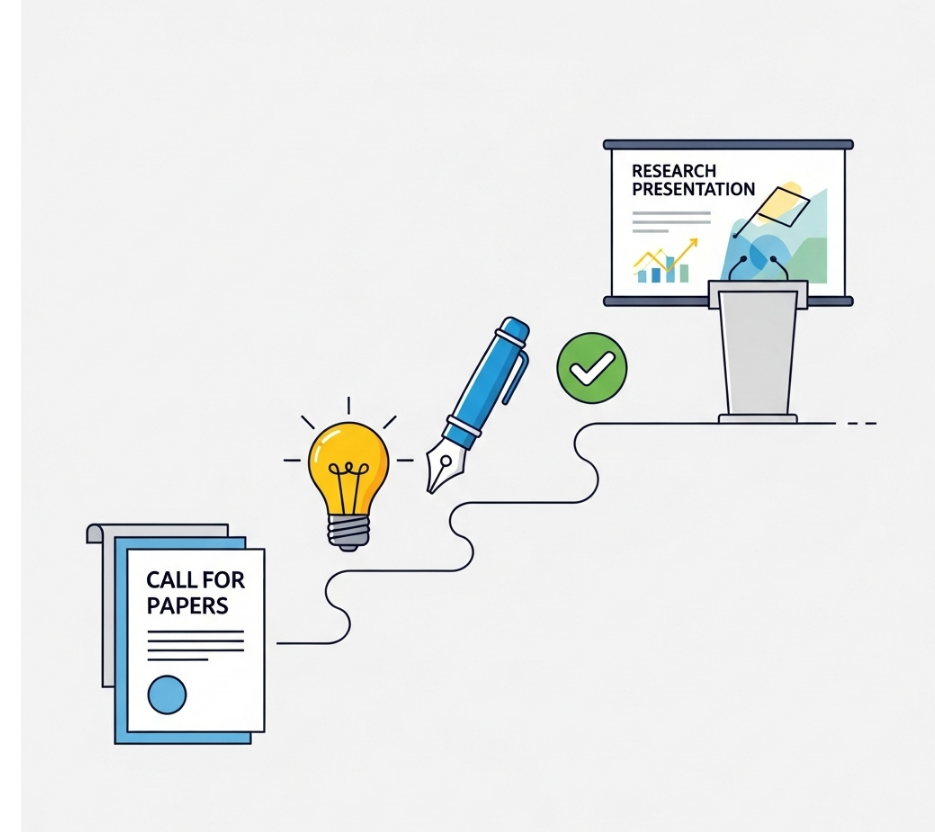

264 views||Release time: Aug 15, 2025
Responding to a "Call for Papers" (CFP) is the first official step toward presenting your research at an academic conference. For graduate students, this is a crucial professional development activity that builds your CV and professional network. This guide explains what to look for in a CFP and where to find the best opportunities.

A Call for Papers is an open invitation from conference organizers for researchers to submit their work for consideration. It's the official rulebook for a submission and contains all the critical information you need. A good CFP will clearly state:
The Conference Theme: This is the most important part. It outlines the central topics and questions the conference will address. Ensure your research is a strong fit.
Submission Deadlines: The absolute final date to submit your work. This is non-negotiable and often includes a specific time zone.
Submission Guidelines: This includes the required format (e.g., abstract-only, full paper), length (word count), and any specific formatting templates (Word/LaTeX).
Review Process: It should mention if the review is single-blind, double-blind, or open. For graduate students, a double-blind review, where reviewers don't know your identity, is often preferred as it focuses solely on the quality of your work.
Graduate Student Support: Look for mentions of travel grants, reduced registration fees, housing support, or awards specifically for graduate students.
Finding the right call for papers requires knowing where to look. Beyond your advisor's recommendations, here are some of the best resources for finding opportunities tailored to graduate students:
University of Pennsylvania's CFP List: This is a classic, widely used resource, especially in the humanities and social sciences. It’s a massive, searchable database of current CFPs from around the world.
H-Net (Humanities and Social Sciences Online): H-Net hosts numerous subject-specific networks (e.g., H-Asia, H-War) that post relevant CFPs, job ads, and discussions. It's a vital resource for staying current in your field.
WikiCFP: A comprehensive wiki that lists conferences across many disciplines, particularly in computer science and engineering. You can search by keyword, deadline, and location.
Professional Organizations: The websites of major academic associations in your field (e.g., American Historical Association, Modern Language Association, IEEE) are the most authoritative sources for their own conferences and sponsored events.
Not all conferences are created equal. As a graduate student, you should prioritize opportunities that offer specific benefits for early-career researchers.
Graduate Student Conferences: Many universities host conferences specifically for graduate students. These are excellent, low-stakes environments to practice presenting and get supportive feedback from peers.
Dedicated PhD/Doctoral Sessions: Look for CFPs that mention a "Doctoral Consortium" or "PhD Workshop." These are sessions where you can present your work-in-progress to a panel of senior scholars for detailed feedback.
Poster Sessions: If you're not ready to present a full paper, submitting a poster is a fantastic alternative. It's a great way to have one-on-one conversations about your research without the pressure of a formal talk.
By strategically evaluating CFPs, you can find opportunities that not only accept your research but also provide the support and feedback crucial for your development as a scholar.